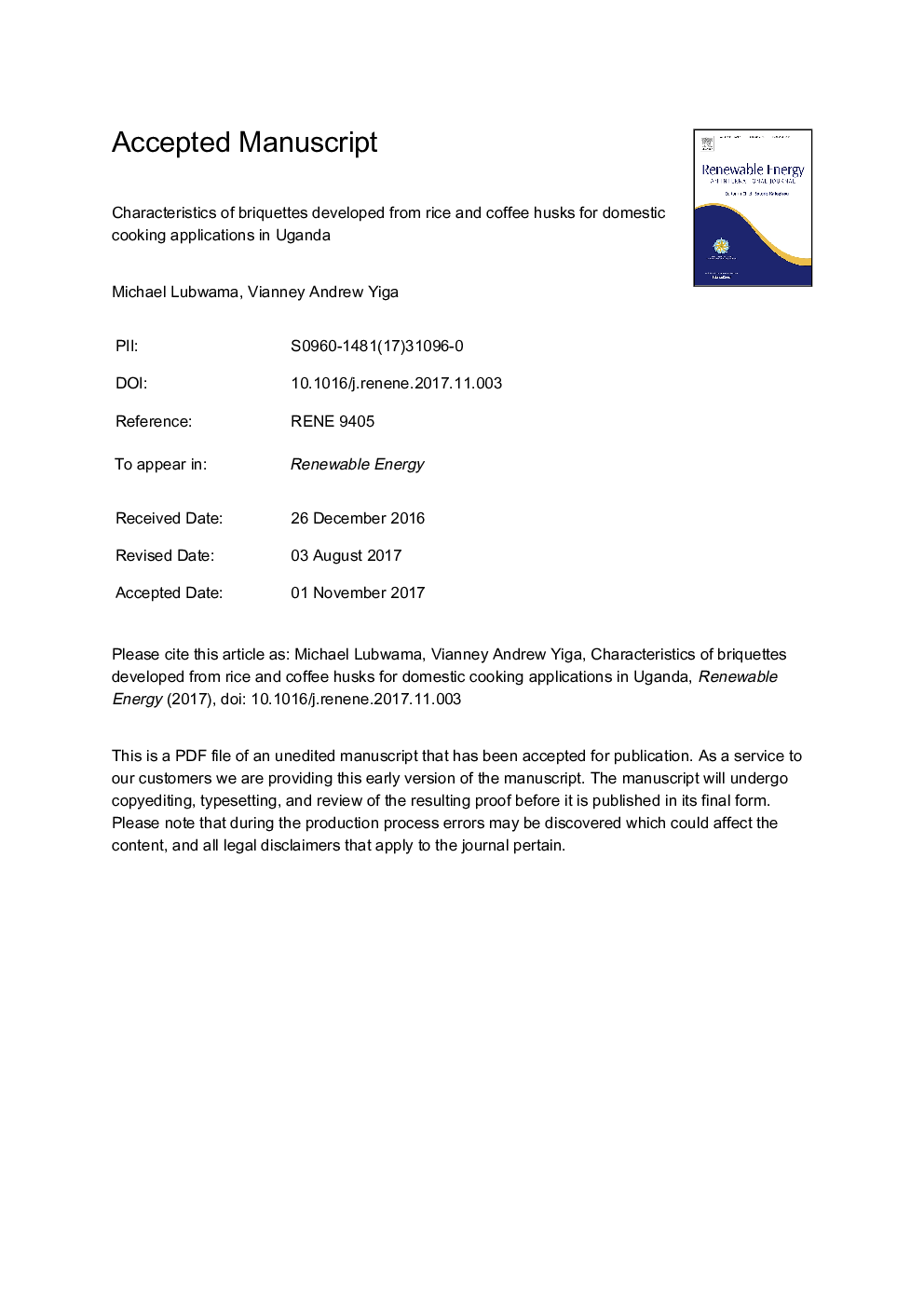| کد مقاله | کد نشریه | سال انتشار | مقاله انگلیسی | نسخه تمام متن |
|---|---|---|---|---|
| 6764915 | 1431586 | 2018 | 51 صفحه PDF | دانلود رایگان |
عنوان انگلیسی مقاله ISI
Characteristics of briquettes developed from rice and coffee husks for domestic cooking applications in Uganda
ترجمه فارسی عنوان
ویژگی های بریکت از دانه های برنج و قهوه برای برنامه های پخت و پز خانگی در اوگاندا توسعه یافته است
دانلود مقاله + سفارش ترجمه
دانلود مقاله ISI انگلیسی
رایگان برای ایرانیان
موضوعات مرتبط
مهندسی و علوم پایه
مهندسی انرژی
انرژی های تجدید پذیر، توسعه پایدار و محیط زیست
چکیده انگلیسی
The goal of this study was to develop briquettes from coffee and rice husks agricultural wastes as sustainable fuel sources for domestic cooking applications. Clay and cassava starch were used as binders. Physical properties of the coffee husks and rice husks as well as the developed briquettes were determined using Thermogravimetric analysis. Higher heating value (HHV) results were determined using bomb calorimetry. Drop test method was used to determine the mechanical and storage integrity of the developed briquettes. The results showed that the type of binder used in the development of the briquettes significantly affected both their physical properties and calorific values. Average higher heating values for briquettes developed with cassava starch binder ranged from 21.9 to 23.0Â MJ/kg for coffee husks and 15.9-16.6Â MJ/kg for rice husks. For coffee and rice husk briquettes developed with clay binder, average higher heating values ranged from 13.0 to 19.5Â MJ/kg and 9.5-13.8Â MJ/kg, respectively. Generally, cassava starch binder imparted higher drop strengths (over 95%) onto the briquettes than clay binder material. The characteristics were influenced by the physical properties of the raw biomass material as well as the high SiO2 ash in the clay binder.
ناشر
Database: Elsevier - ScienceDirect (ساینس دایرکت)
Journal: Renewable Energy - Volume 118, April 2018, Pages 43-55
Journal: Renewable Energy - Volume 118, April 2018, Pages 43-55
نویسندگان
Michael Lubwama, Vianney Andrew Yiga,
